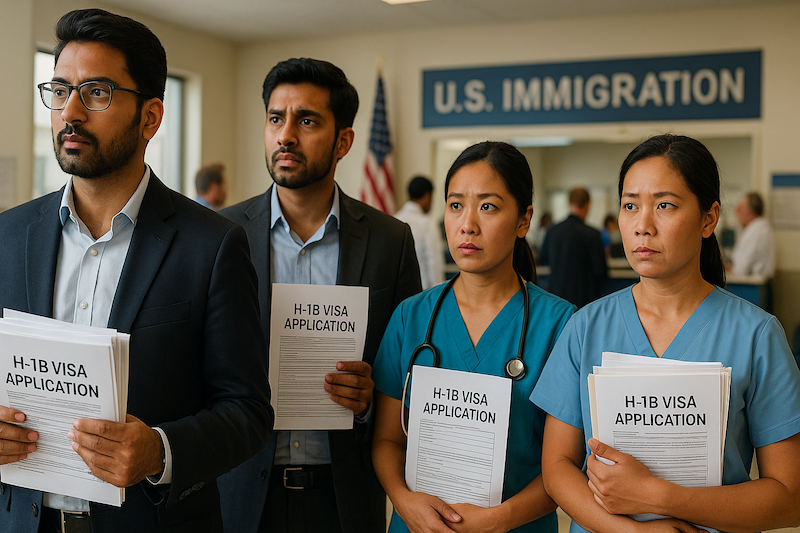H-1B Initial Employment Approvals: Gender Gaps Narrow, Philippines an Outlier with Female Majority

TL;DR The US government’s new policies have sparked major changes to the H-1B visa program. Historical data show a consistent male majority in initial employment approvals, though the gender gap is slowly narrowing. The Philippines stands out as a notable outlier, boasting a female majority, which highlights its diverse professional migration patterns.
Context:
The latest presidential proclamation on the H-1B visa has introduced significant and contentious changes, sparking widespread concern among foreign professionals, companies, and international partners. The most impactful change is the new $100,000 one-time fee for all new H-1B petitions, a dramatic increase from the previous amount. While the U.S. government has clarified that this fee applies only to new filings and not to existing visa holders or renewals, the initial confusion caused immense distress.
Additionally, the administration is moving to abandon the H-1B’s traditional lottery system in favour of a wage-based weighted selection process, which would give preference to higher-paying jobs. Given that India accounts for over 70% of all H-1B visa approvals, the implications of these policy changes are particularly significant for the Indian tech industry and its vast pool of skilled professionals.
Who compiles this data?
Official H-1B visa data, including the number of petitions, approvals, and country of origin, is compiled and released by the US Citizenship and Immigration Services (USCIS), which is a federal agency within the Department of Homeland Security.
Where can I download clean & structured data related to H-1B approvals?
Clean, structured, and ready-to-use dataset on Year, Place of Birth and Gender wise Total Number and Share of H-1B Petitions Approved for Initial Employment can be downloaded from Dataful. This is data about new H-1B visas for foreign workers who are not currently in the program, signifying their entry into the US workforce.
Other datasets related to Indian students in the US, Non-Immigrant Visas, Apprehensions and Hate Crimes are also available on Dataful.
Key Insights
- In every fiscal year from 2019-20 to 2023-24, males consistently received a significantly higher number of initial H-1B visa approvals, accounting for roughly two-thirds of the total.
- Despite the majority, the gender gap is reducing as the female share of approvals has steadily increased each year, rising from 33.57% in 2019-20 to 36.53% in 2023-24.
- India accounts for approximately 60% of all H-1B visas and has a clear male majority among their visa holders. This gender imbalance is likely a reflection of the overall dominance of the tech and IT sectors in the H-1B program, which are themselves male-dominated industries.
- The Philippines stands out as the only country with a significant female majority in H-1B approvals. This can be attributed to the high demand for and migration of female professionals in the US healthcare sector.
- Other countries show mixed trends, though their overall numbers are insignificant. Pakistan has the most significant gender gap with a strong male majority, while countries like Taiwan and South Korea have a more balanced distribution of approvals between genders.
Why does it matter?
The new H-1B policies could make the US less attractive for skilled global talent, potentially pushing professionals to more welcoming countries. For US companies, especially in the tech sector, this could raise costs and complicate staffing strategies. Furthermore, the changes may disproportionately affect visa-seeking women if they are concentrated in professions with different salary brackets, potentially widening the gender gap.
Key numbers
- India’s Share: ~60% of all H-1B visas for initial employment
- All Countries’ Gender Share (FY 2019-20 to 2023-24):
Female (↑): from 33.57% to 36.53%
Male (↓): from 66.28% to 63.37% - Philippines Gender Share (FY 2023-24):
Female 64.6% > Male 35.4%